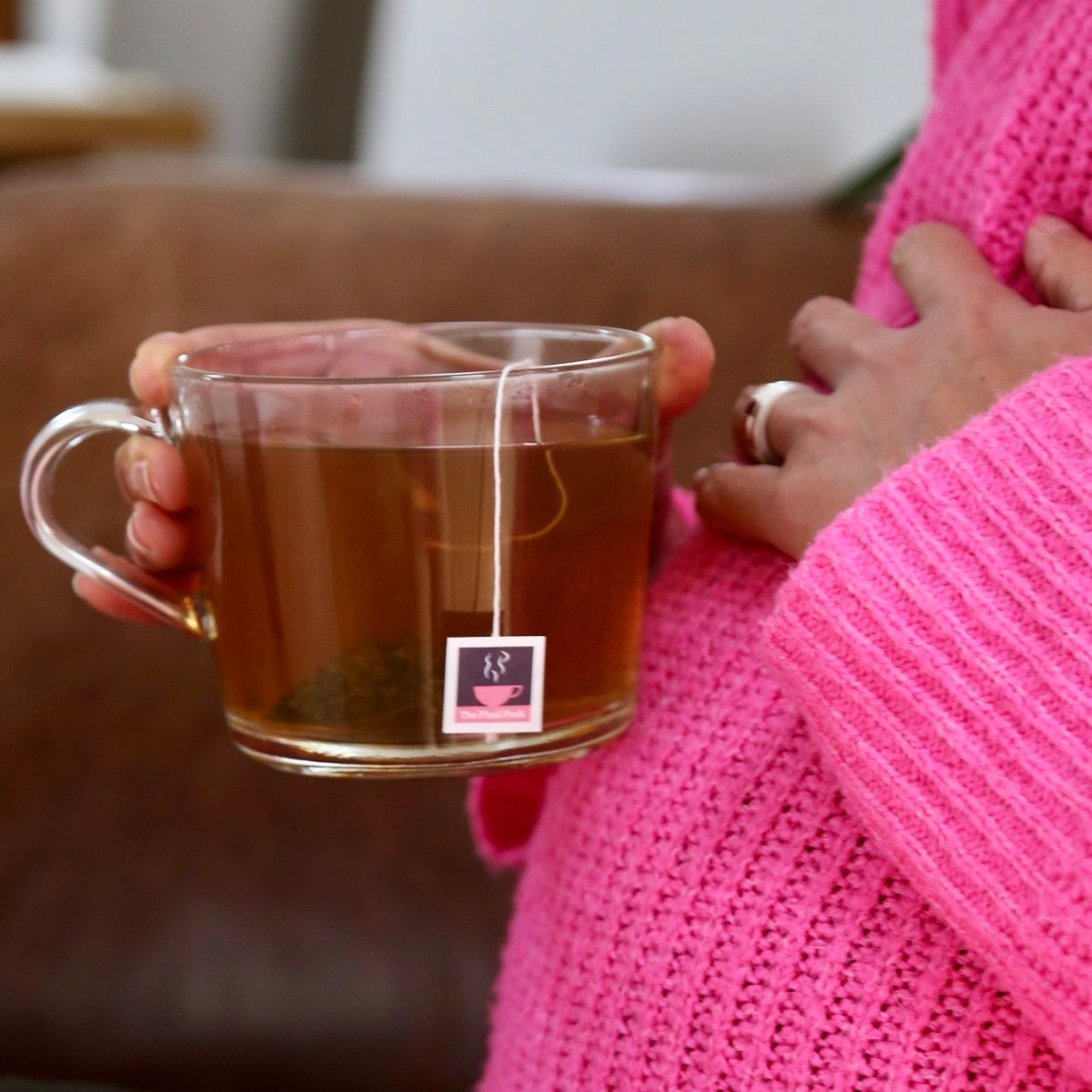Why is raspberry leaf tea known as 'the women's herb'?

Raspberry leaf tea is a uterine tonic that has been used to support women's wellness for thousands of years.
First recorded in the 5th century by Romans, the first written record of it's use to support pregnancy was in 1597, in the book The Herbal, or A General History of Plants by John Norton. And it was noted as helping 'too much flowing of the women’s courses' in the 17th century text, 'The Compete Herbal'. And it's link to supporting women's wellness has only grown since then. Whilst research is limited, there are studies that support the historical use - but more research is needed to expand on this.
It contains a chemical compound called fragerine, which has been shown to impact the uterine muscles. Strengthening them, potentially helping to regulate the menstrual cycle and improving blood circulation to them.
Whilst evidence is limited in large scale studies, there are growing small scale studies showing the benefits of raspberry leaf for all stages of life...
PERIODS
Raspberry leaves contain certain chemical compounds - fragarine and tannins, which are believed to help tone and relax the muscles of the pelvic region, including the uterus. Fragarine, in particular, is thought to help reduce menstrual cramping by relaxing the uterine muscles.
Our period support tea, Over The Moon, includes raspberry leaf along with chamomile and rose for natural pain relief, spearmint for hormone balance and dandelion root to ease bloating. It’s great for PMS, PCOS and endometriosis.
PREGNANCY
Alongside the long historical use of raspberry leaf tea at the end of pregnancy, there are small scale trials showing links to benefits in labour. Certainly not a guarantee, but they do show no negative impact of drinking the tea from 32 weeks pregnancy onwards.
Animal studies: Fragarine in particular has been shown in animal studies to make the uterine muscles gently contract, and for this reason it isn't recommended to drink raspberry leaf before 32 weeks of pregnancy at the earliest. But in the later stages of pregnancy, there is
Simpson et al. (2001): A double-blind, randomized, placebo-controlled study published in the Journal of Midwifery & Women's Health investigated the effects of raspberry leaf on pregnancy outcomes. It involved 108 pregnant women who were given either raspberry leaf tablets or a placebo from 32 weeks of pregnancy until labor. The study found that raspberry leaf did not reduce the length of the first stage of labor but may reduce the second stage of labor. There was also a suggestion that raspberry leaf could reduce the need for forceps delivery, though the results were not statistically significant.
Holst et al. (2009) Review: A review published in the Australian College of Midwives Incorporated Journal examined the use of raspberry leaf and concluded that while it is widely used by midwives and pregnant women, and there is some clinical evidence supporting its benefits, this is still limited. The authors highlighted the need for more well-designed clinical trials to assess its effectiveness.
The Final Push raspberry leaf and peppermint blend is designed to ease the end of pregnancy, as a natural way to prepare for labour and also help heart burn and indigestion.
PERIMENOPAUSE and MENOPAUSE
There is unfortunately no research into menopause and raspberry leaf - this will hopefully come. But whilst not directly studied for menopause, the nutrient profile of raspberry leaves (which includes vitamins and minerals like vitamin C, magnesium, and iron) may provide some general health benefits that could support women during perimenopause and beyond.
There is also anecdotal evidence that the fragarine, tannins and flavanoids in the tea can help support uterine wellness.
This is why it’s a key part of our perimenopause support tea, Take A Pause, which also includes sage and liquorice for hot flushes, green tea for bone health, valerian root for anxiety and ginseng for brain fog.




Comments